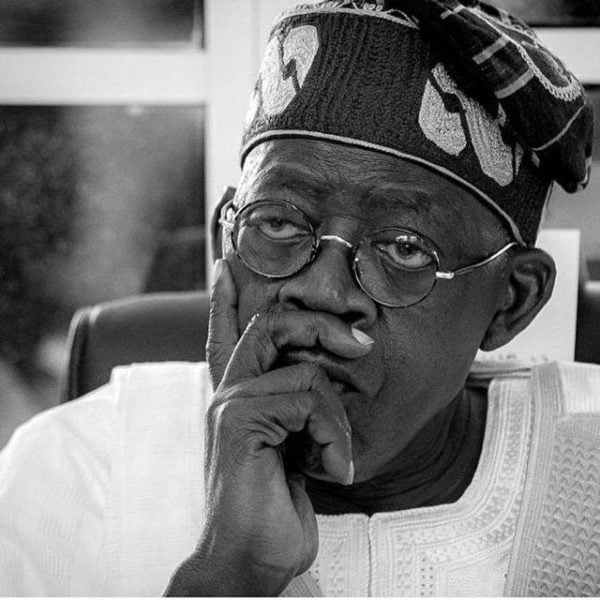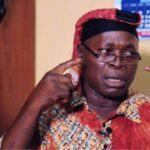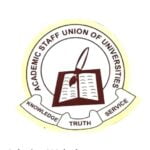TWO major events dominated the country last week: President Muhammadu Buhari’s request to All Progressives Congress (APC) governors to agree with him in picking his successor in nearly the same manner he allowed them ‘promote’ their successors at the state level, and ex-Lagos State governor and APC national leader Bola Ahmed Tinubu’s Abeokuta impassioned speech against the unending plots to frustrate his presidential ambition.
The consequences of both events will reverberate through the party’s special convention to elect the party’s presidential standard-bearer, and possibly ripple through next year’s general election. Even though adversarial media, not to say the feral social media, made the Tinubu speech the main event of last week, it actually pales in comparison with the request by the president, subject to the convergence and reciprocal support of the so-called progressive governors, to agree with him in picking his successor. In short, he wants consensus; but consensus driven by whom, and openly or conspiratorially covertly? Asiwaju Tinubu’s angry denunciation of his traducers within and outside the party has no bearing on the 1999 Constitution and the APC Constitution. But President Buhari’s peculiar approach to picking his successor, if carried through, could cause a tectonic shift in both constitutions akin to the counterproductive imposition orchestrated by ex-president Olusegun Obasanjo in 2007.
It is unclear where the progressive governors got the impression that the president’s plaintive plea for reciprocity in picking his successor involved their active participation, but no sooner he met them than they began scheduling meetings to determine who that pick would be. It was presumptuous and irresponsible on their part and showed their poor understanding of the APC constitution and their lack of character. But presidential spokesman Femi Adesina’s clarification that the president did not invite them into the process but in fact asked them only to connive at it should help restrain their fertile imagination. The president was clear that when the governors acted like potentates in scheming their second term or promoting their successors, he was nothing but an onlooker. In effect, he simply wants them to play the same role of onlookers, perhaps giving an advice or two, but really nothing more. It was of course wrong for the president to have connived at the governors’ shenanigans in the states, for it was obvious that his reluctance to interfere was not based on ethical or constitutional considerations but on an intriguing interpretation of the doctrine of separation of powers. However, having let the governors played ducks at the states, he wants to be allowed to also play drakes at the national party level. Most of the governors, from every indication, appear ready to let him do whatever he wants. Even if they know what is right, and this goes beyond the constitution and the laws of the land, they lack the courage and the character to restrain him. He is after all the president.
In his speech to the governors last Tuesday during the consultative meeting, the president said a few things that showed the uncertainty of his thoughts or the imprecision of his speechwriters, or both. In paragraph four, he spoke of great parties being internally cohesive and led by strong leaders. This is incredible. Could these globally acclaimed parties flout their constitutions and turn them into a den of unjust and cruel manipulators and still remain great? Internal cohesion can only be built on justice, fairness and equity. The APC since 2015 has exemplified conspiracy, dissension and ruthless and restless scheming. And as for strong leadership, it must of course be presumed that the leaders in question possess the depth, intuition and character needed to firmly guide their parties. Is President Buhari convinced that the APC is similarly led? The president not only spoke entrancingly of strong leadership, in paragraph five, he also eulogises ‘stronger leadership’ which he swore ready to provide. Strong or stronger leadership must be based on the right values, his speechwriters should have warned him.
In paragraph seven, the president spoke of ‘according the governors the privilege of promoting successors capable of driving their visions as well as the ideals of the party’. Mark the word ‘promoting’. He was at least honest enough to admit that the governors in question promoted successors, not pick, as he went on to advocate in paragraph 10 when he solicited the “reciprocity and support of the governors and other stakeholders in picking my successor…” The governors promoted, he wants to pick. Or perhaps the president used pick and election interchangeably. In any case, paragraph 10 cannot be read separate from paragraph seven in order to understand the president’s intention.
Whoever advised the president to urge the picking of his successor almost as a counterpoise to the governors’ promotion of their successors has done him and the APC injury that may not be easily remedied. Picking a successor in the way he meant it in his speech is unconstitutional and unlawful. He said, however, that he was still consulting, when he appeared to have in fact made up his mind. He made it up months ago when he told reporters he would keep his choice secret lest his preference be destroyed before the D-Day. The fateful day has come, and a week before the convention, he has tried to soften the ground by ‘soliciting’ the cooperation of governors and stakeholders. He was right to keep his preference like a card played close to his chest, in case it turned out that the governors and stakeholders preferred someone else, especially in light of the choice the aggressive, better organised and surprisingly more democratic PDP made during their special convention. The PDP has put their best foot forward, despite it being somewhat gangrenous; the APC will imperil itself should it put a weak, faltering and leprous foot forward.
While the president is contending with his own unforced errors, Asiwaju Tinubu exploded a depth bomb under the APC dreadnought in Abeokuta when he railed against the serial plots of the party to sideline him. His enemies and opponents have gratefully seized the opportunity of his quaint and provocative use of words to chafe at his assumptions and conclusions: he is playing God; he is full of bombast; he is at bottom a dictator; he is a narcissist; he is tribal; he is rude to President Buhari, etc. Asiwaju Tinubu has come to the conclusion that those plotting against him, including a significant number of south-westerners who lack strategic and holistic understanding of Nigerian politics, will always damn him whether he blows his top or not. He also understands that since 2015, many in the administration and the ruling party have made it their cardinal duty to diminish him and if possible politically neutralise him completely. They see him as a man who can call his soul his own, when their ideal of a president is someone who genuflects. His friend and campaign director-general, ex-governor Kashim Shettima of Borno State, is mystified by the poor thinking sweeping through the Southwest and the mindless conspiracy wafting through the ruling party and the administration. Mr Shettima knows that Asiwaju Tinubu is the APC’s most credible chance to PDP candidate Atiku Abubakar; but the party seems blissfully desensitised to that fact, while vociferous and scurrilous south-westerners don’t seem to care that their vicious campaign against the former Lagos governor is indirectly enabling a monster or a weakling to take office in 2023.
This column had wondered how Asiwaju Tinubu, after his immense sacrifice for the political advancement of the president and the APC, could stomach all the abuse and plots in the party and among the so-called cabals against him and his ambition. For seven years he had endured the trauma, including when he was not even running for office in 2019. It is, therefore, finally reassuring that he is human after all. He has tried to walk back some of the things he said in Abeokuta, including suggesting that his nuanced statements were misinterpreted or twisted. Yes, that may be true, but his opponents have made up their minds about what he said. Notwithstanding, all he had to say probably indicate how frustrated he had become after virtually giving his life to serve the party, not to say his mentees most of whom have proved absolutely undeserving, that he is still being relentlessly vilified. Asiwaju Tinubu owes the country an explanation of how he feels being shabbily treated. He should ignore the pestilential chatter on social media and the bought traditional media. There is hardly anyone but he who could have tolerated for so long the kind of abuse he was subjected to by his party and friends, including being made to be screened by a former party chairman with whom he had fallen out, and not ask for more than a pound of flesh.
The APC presidential primary begins tomorrow, and someone must emerge as candidate. The president and the governors will hopefully allow an unencumbered democratic process to prevail. But whatever they do – whether they opt for the twisted consensus some attribute to them or embrace something noble – will determine their party’s survival or implosion. They will be mistaken to think they can use state power to foist a weak candidate on the country in the face of a hungry and determined PDP. As for Asiwaju Tinubu, he has proved himself. His cathartic outburst in Abeokuta does not, strangely, condemn him; it canonises him. He is not perfect, and there are indeed justifications for some of the criticisms leveled against him; but there is no presidential aspirant in his party at the moment – not the cautious and ingratiating Sen Ahmad Lawan and Vice President Yemi Osinbajo nor the doting and impressionable Rotimi Amaechi and Kayode Fayemi – who can hold a candle to him.
Daily News Reporters



